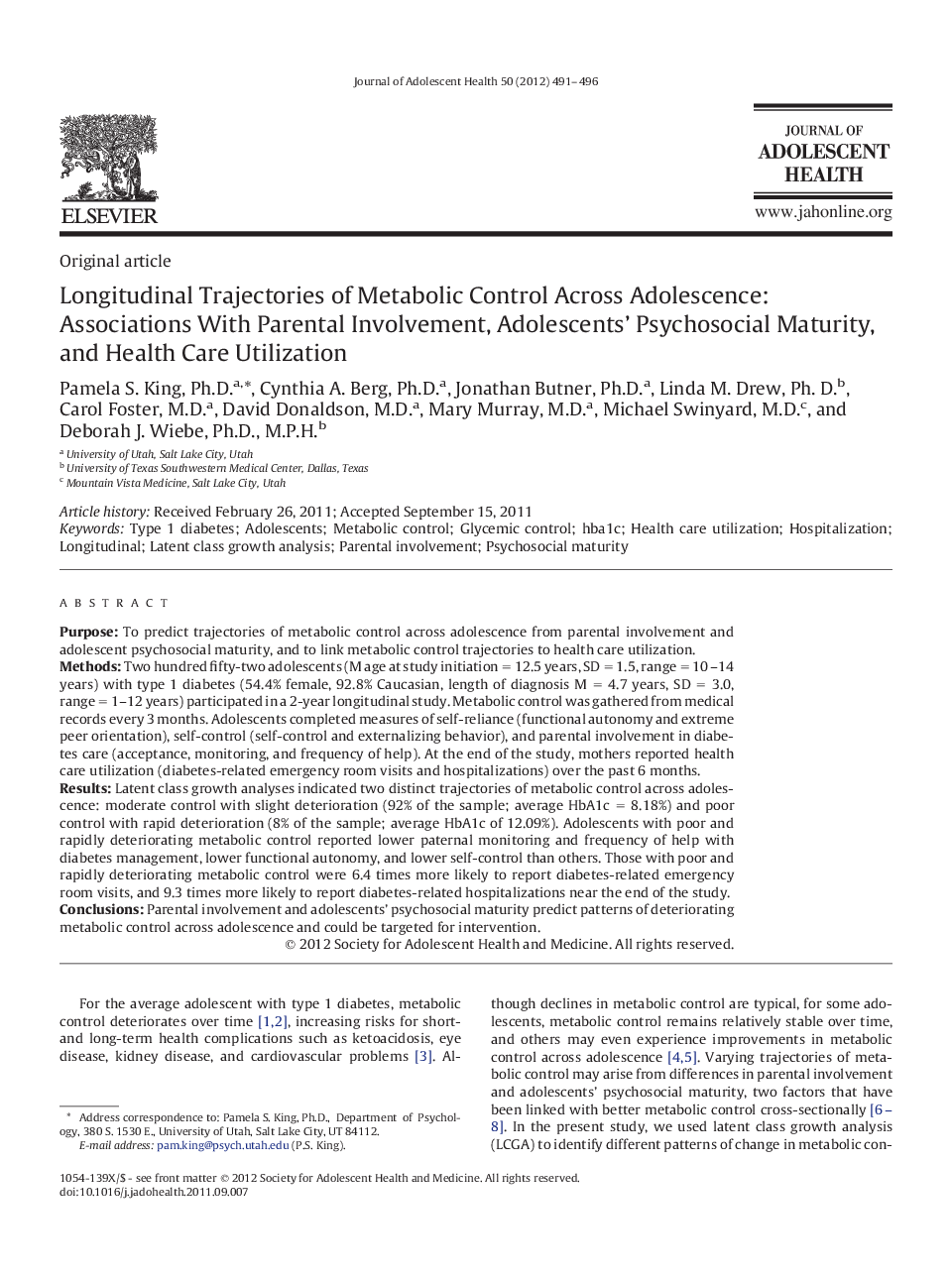| کد مقاله | کد نشریه | سال انتشار | مقاله انگلیسی | نسخه تمام متن |
|---|---|---|---|---|
| 1078740 | 950471 | 2012 | 6 صفحه PDF | دانلود رایگان |

PurposeTo predict trajectories of metabolic control across adolescence from parental involvement and adolescent psychosocial maturity, and to link metabolic control trajectories to health care utilization.MethodsTwo hundred fifty-two adolescents (M age at study initiation = 12.5 years, SD = 1.5, range = 10–14 years) with type 1 diabetes (54.4% female, 92.8% Caucasian, length of diagnosis M = 4.7 years, SD = 3.0, range = 1–12 years) participated in a 2-year longitudinal study. Metabolic control was gathered from medical records every 3 months. Adolescents completed measures of self-reliance (functional autonomy and extreme peer orientation), self-control (self-control and externalizing behavior), and parental involvement in diabetes care (acceptance, monitoring, and frequency of help). At the end of the study, mothers reported health care utilization (diabetes-related emergency room visits and hospitalizations) over the past 6 months.ResultsLatent class growth analyses indicated two distinct trajectories of metabolic control across adolescence: moderate control with slight deterioration (92% of the sample; average HbA1c = 8.18%) and poor control with rapid deterioration (8% of the sample; average HbA1c of 12.09%). Adolescents with poor and rapidly deteriorating metabolic control reported lower paternal monitoring and frequency of help with diabetes management, lower functional autonomy, and lower self-control than others. Those with poor and rapidly deteriorating metabolic control were 6.4 times more likely to report diabetes-related emergency room visits, and 9.3 times more likely to report diabetes-related hospitalizations near the end of the study.ConclusionsParental involvement and adolescents' psychosocial maturity predict patterns of deteriorating metabolic control across adolescence and could be targeted for intervention.
Journal: Journal of Adolescent Health - Volume 50, Issue 5, May 2012, Pages 491–496